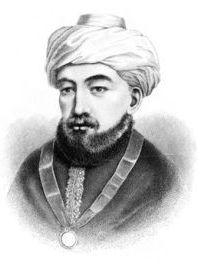Maimonides’ Hidden Torah Commentary to Deuteronomy
By Rabbi Dr. Israel Drazin


BOCA RATON, Florida — Rabbi Dr, Michael Leo Samuel of Chula Vista, California, is one of the top world experts on Maimonides and Philo. His books on both philosophers are filled with easy to read information that will open the eyes and minds of readers. Maimonides’ Hidden Torah Commentary to Deuteronomy is the final book of Rabbi Samuel’s series on Maimonides’ hidden Torah commentary. The volumes on Genesis, Exodus, Leviticus, and Numbers were published to acclaim in the recent past. The title hidden commentary highlights the fact that Maimonides felt, as he states in his introduction to his Guide of the Perplexed, that it not good for him to reveal all that he understands about the Bible and philosophy because the average insufficiently educated person will find many of his understandings threatening to the unsophisticated ideas upon which they base their lives and behaviors. Rabbi Samuel reveals many ideas that Maimonides kept hidden. He does so by using good analyses and by referring to the teachings of many Jewish and non-Jewish scholars.
He addresses many difficulties. A basic question about Judaism and the Torah is: Did God reveal the Torah? If God did reveal it, how was it revealed? Did God speak to Moses and dictate the Torah as many ancient and many modern rabbis say? How did God speak to Moses? What did Moses hear? Does God speaking to Moses mean Moses was inspired? Rabbis speak about Torah m’Sinai, the Torah given at Sinai, but the Torah itself does not say so. It only states that the Decalogue was revealed at Sinai. People call the Decalogue “The Ten Commandments,” even though the Torah calls it Aseret Hadevarim, Decalogue in Greek and English, which means “ten statements.” The Decalogue has more than ten commandments. Why do people erroneously call it “The Ten Commandments”? When the rabbis say the entire Torah was given at Sinai, do they say so metaphorically, implying that the entire Torah is so important that it is “as if” it was revealed at Sinai? Similarly, when the statement is made, Torah min Hashamayim, “The Torah from Heaven,” is this also a metaphor stressing the importance of the Torah and should not be taken literally? What is the difference between Torah m’Sinai and Torah min Hashamayim?
And there are many more questions, such as: When was the Torah composed? Even if parts of the Torah were given at Sinai, were some parts added at later dates? A view in the Talmud recognizes that Moses could not have composed the last part of the Torah about his death. The view states that this section was written by Joshua. What about other sections? Also, did Moses or God address the needs of the ancient Israelites expecting future Jewry to change, add, and delete items no longer pertinent to the future generations? How does all this effect halakha, Jewish law?

Rabbi Samuel gives us insights into Maimonides’ thinking that will surprise many people. He quotes Maimonides writing in his essay called Chelek:
“When we call the Torah ‘God’s Word’ we speak metaphorically. We do not know exactly how it reached us, but only that it came to us through Moses who acted like a secretary taking dictation. He wrote down the events of the time and the commandments…. And anyone who says that any of these verses or stories was made up by Moses on his own, such a person is considered by our Sages and Prophets to be the worst kind of heretic.”
This statement is difficult. If, as Maimonides states, the term “God’s Word” is a metaphor, and since we do not know how the “Words” reached us, how can we say that people who claim Moses made up these Words are heretic?s Rabbi Samuel discusses and explains this.
Rabbi Samuel also discusses: Is there such a thing as Hell? Maimonides: “no.” How can prophets have doubts? Maimonides: prophecy is a natural phenomenon, the use of a person’s intelligence. Can one cling to God? Maimonides: “no.” Mystics: “yes.” Should rabbis be paid for their work as a rabbi? Maimonides: “no.” What is the meaning of a “jealous God”? Maimonides: God has no emotions. So, what does the Torah mean by this description? How can a person control “coveting”? Maimonides: by developing habits. May one be superstitious? Maimonides: “no, it is unreasonable.” Does God get help from angels? Maimonides: “no, God does not need help.” Does sorcery work? Maimonides: “no.” Nachmanides: “yes, but Jews should not use it.”
Also: Does God listen to prayer? If yes, does God respond? Why does Maimonides stress knowing God and not believing in God? How does a person know God when Maimonides states it is impossible to know anything positive about God? What does God know? Are prayers attempts to bribe God?
Rabbi Samuel addresses these and other issues, such as textual criticism, rabbinically-recognized emendations made by scribes to the Torah text and more in this book. He refers to many enlightening sources, Jewish and non-Jewish, for as Maimonides taught in his introduction to his Guide of the Perplexed, the truth is the truth no matter what its source. These sources even include the Muslim Koran, the New Testament, along with the Babylonian and Jerusalem Talmuds, Midrashim, Philo, Josephus, Abraham ibn Ezra, Mircea Eliade, Meiri, Joseph Karo, Radak, James Frazer, and many more.
In short, using Rabbi Michael Leo Samuel’s brilliant book is one of the greatest gifts that people can give themselves.
*
Rabbi Dr. Israel Drazin is a retired brigadier general in the U.S. Army chaplain corps and the author of ore than 50 books.